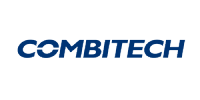Understanding attitudes towards mental illness in the workplace
While most people accept physical illness in themselves and others and understand if you have to take a sick day due to a temporary or chronic physical condition, the same attitudes do not always come across when it comes to mental illness, of which there are as many different types as there are of physical illness.
Calling in sick due to anxiety, grief or other mental issues does not seem as natural to many people as it is to call in due to a flu. Mental health issues are often stigmatized and when reported on in the media, often associated with tragic events such as mass shootings or suicide.
In their contribution to the Hack in SAS® Viya® competition, Combitech set out to try to understand what factors play into employees’ willingness to discuss their mental health status during a job interview or with a supervisor.
Hiding a mental condition in the work place can be problematic for the individual and depending on the job and severity of the condition, a big risk for both the employee and the workplace if mental illness goes undiagnosed and untreated. Forcing people to hide their mental illness is dangerous and policies and guidelines are not enough. Acceptance and a supportive environment is very important. Kevin Kyeong Combitech team
Tech workers asked about mental health attitudes
Using a 2014 survey data set from the organization Open Sourcing Mental Illness (OSMI), Combitech analyzed the responses from 1259 respondents among tech workers to explore attitudes about whether people feel comfortable sharing their mental health status at work.
The data exploration report revealed that most were between 19 and 46 years old with normal distribution, most from US with a large representation in California, and a large majority (more than 1000 of the 1259 respondents) were men.
In their data exploration, Combitech looked at the respondents’ view on whether sharing their mental health issues during an interview would have negative consequences. By lining up answers in a decision tree model, they could determine that there was a strong correlation between ‘willingness to share’ and ‘perception of consequences’ as well as the availability of mental health initiatives in the workplace.
The conclusion is that benefits and support systems have little impact on the employee’s willingness to share their mental health condition with a supervisor. The most important factor for the employee is the perceived consequence of poor mental health. Kevin Kyeong Combitech team
He also points out that although the sample of female respondents was smaller, as a group they were a lot less willing to share their mental health status at the interview stage than their male counterparts. But more research into the correlations between attitudes in employees and in the workplace are very welcomed.
We believe the surveys could be better designed and we hope that there will be more data gathered and that we can build a society that supports and treats mental illness better. Kevin Kyeong Combitech team

Challenge
- Uncovering attitudes about mental health issues in employees as related to workplace benefits and support.
Solution
- By using data from OSMI, attitudes towards sharing information about mental health status at work was explored. A decision tree model could determine strong correlations between "willingness to share’" and "perception of consequences".
Benefit
- Gaining a greater understanding of stigma through data exploration is the first path to better support systems for employees with mental health issued.
Technologies used
- SAS® Viya®
- SAS® Viya® Analytics
About Hack In SAS Viya
In association with Intel and SAS Nordic User Group “Fans”. SAS hosted the competition “Smarter Together” for SAS partners. Here, teams of analysts and data scientists demonstrate the value of open data combined with SAS® Viya® in the cloud and open source technologies.
SAS provided the SAS® Viya® platform with a number of SAS tools in the cloud for easy access through saasnow.com. The nine participating teams built showcase based on a number of SAS software products including: Visual Analytics, Visual Statistics, Visual Data Mining & Machine learning, econometrics, and optimization.

